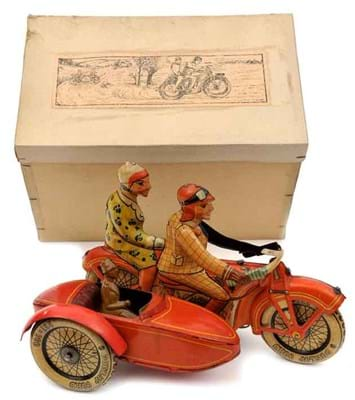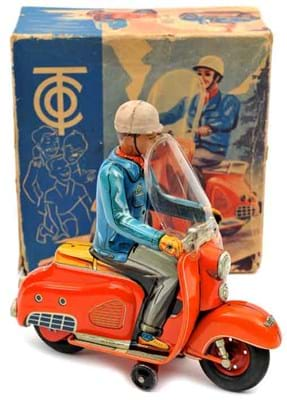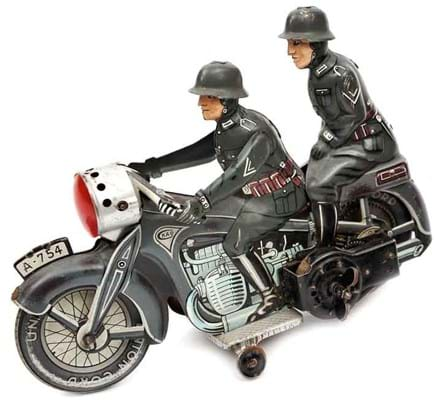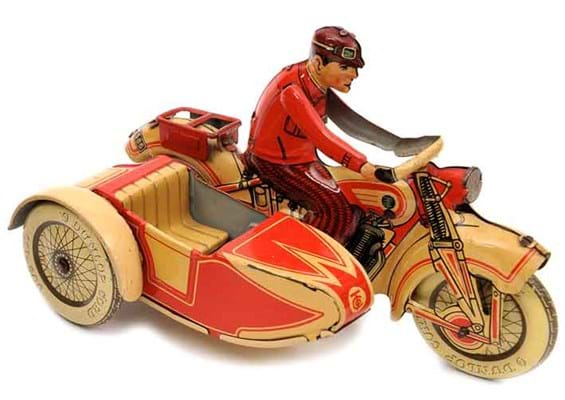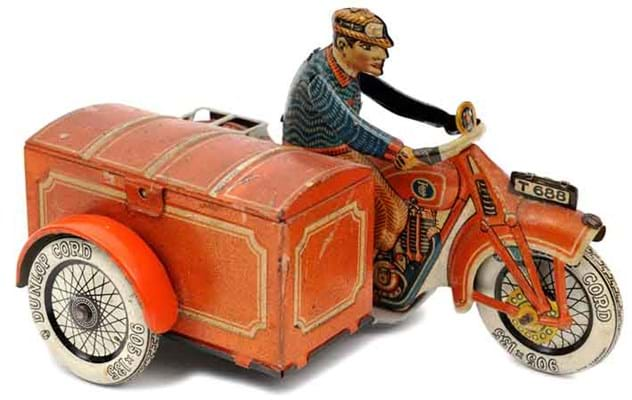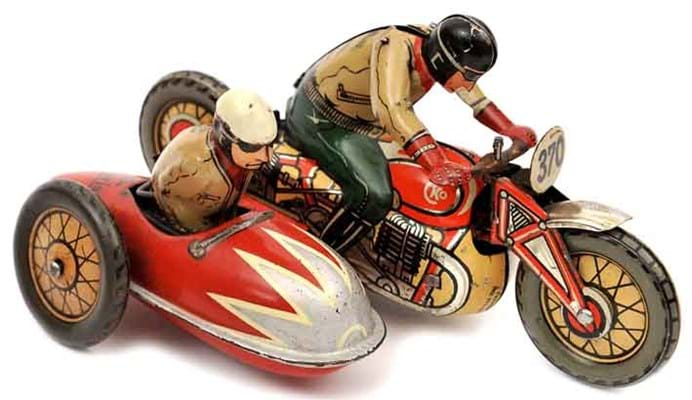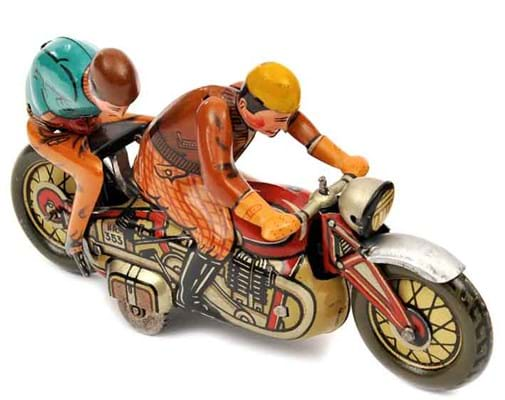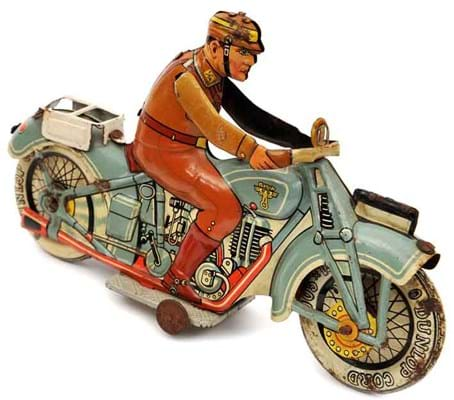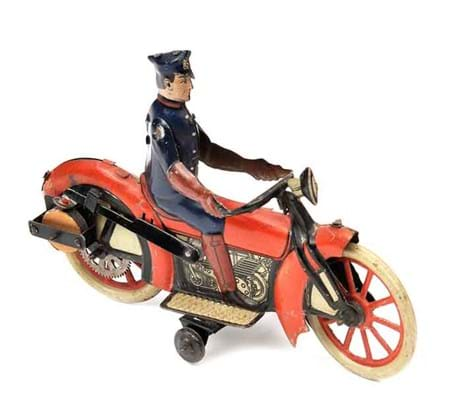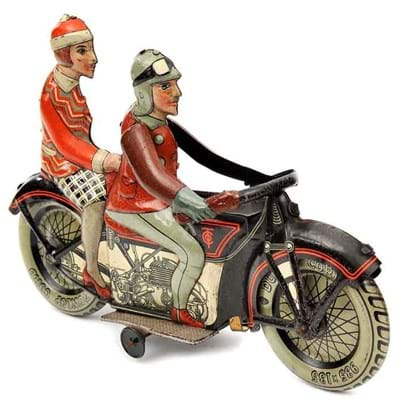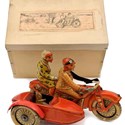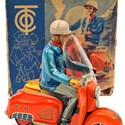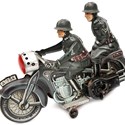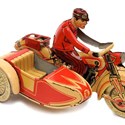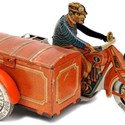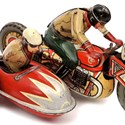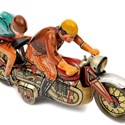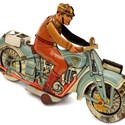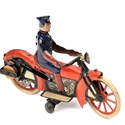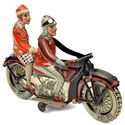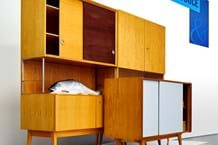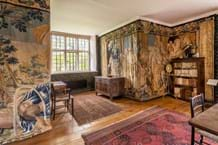Founded in 1912 by a Miss Tipp and a Mr Carstens, under the ownership of the Ullman family, the firm grew quickly to join Carette, Bing, Hess, Lehmann and Märklin among the great German toy makers.
But Philip Ullmann was Jewish. In 1933 amidst increasing Nazi persecution and restrictions he fled to England where, holed up with colleague Arthur Katz in workshop space offered by Bassett-Lowke in Northampton, he began manufacturing toys to raise funds for other Jewish refugees. He called the company Mettoy, later better known as Corgi.
Meanwhile, in Nuremberg his company had been seized and, under the aegis of Ernst Horn, the former director at Bing (who had gone into receivership in 1932), production changed from civilian motorcycles and London buses to toys celebrating the rebuilding of the German military. Considered a morale booster, production of Tipp & Co tinplate staff cars, troop transporters, anti-aircraft guns and tanks continued well into 1942.
An excellent selection of Tipp & Co. toys, most of them from the 1930s, formed part of a substantial private collection of more than 100 German and Japanese lithographed tinplate motorcycles sold by Wallis & Wallis in Lewes, Sussex on September 3. All were in working order and in generally good condition.
Among the 'civilians', a highlight was the Tipp & Co tinplate motorcycle combination - an orange and white-lined machine ridden by two liberated girls, the rider in a yellow and orange check suit and the passenger in a yellow and blue floral jacket. Showing only signs of light paint wear and offered in its seldom seen original cardboard box with a pictorial label, it exceeded the top estimate to sell at £4800.
Tyres and Condition
Condition being nine tenths of the law in toy collecting, it is always interesting to compare the results of two versions of the same model. There were two examples of the motorcycle combination T689 with three riders - a gentleman in leathers, his wife riding pillion and his daughter in the sidecar. The first, with light grey coloured Dunlop Cord 'tyres', was in typical condition and made £1600. A version with darker tyres, deemed to have survived in exceptional state, brought more than double at £3600.
However, as the range of illustrations suggest, many of the most eagerly contested Tipp models were Third Reich themed toys (often simply adapted from the earlier 'civilian' subjects). Rarity is certainly a factor here. Although they ranked among the finest clockwork tin toys of their day, much of Tipp's output was destroyed after the War and once popular models, such as the large and imposing Mercedes 'Fuehrer wagon', are seldom seen.
The T689 toy is much scarcer today as a military vehicle, lithographed with brown and green camouflage with the three riders all wearing German infantry uniforms. The example here, with only light age patination attracted plenty of potential buyers at the pre-sale estimate of £3500-4500 and it eventually sold for £5200.
Sold at £2950 each were two versions of a uniformed despatch rider, one wearing the light brown get-up of the National Sozialistische Kraftfahrkorps (National Socialist Motor Corps).
As something of a footnote to the Tipp & Co story, in 1948 Ullmann regained control of the firm he helped create and with his son Henry managed two Anglo-German toy firms.
In addition to American-style saloons and Volkswagen minibuses, all admired for their modelling and their finish, a popular model was the friction powered Bella Scooter with rider. A very good example offered here in its original box sold at £1400.

